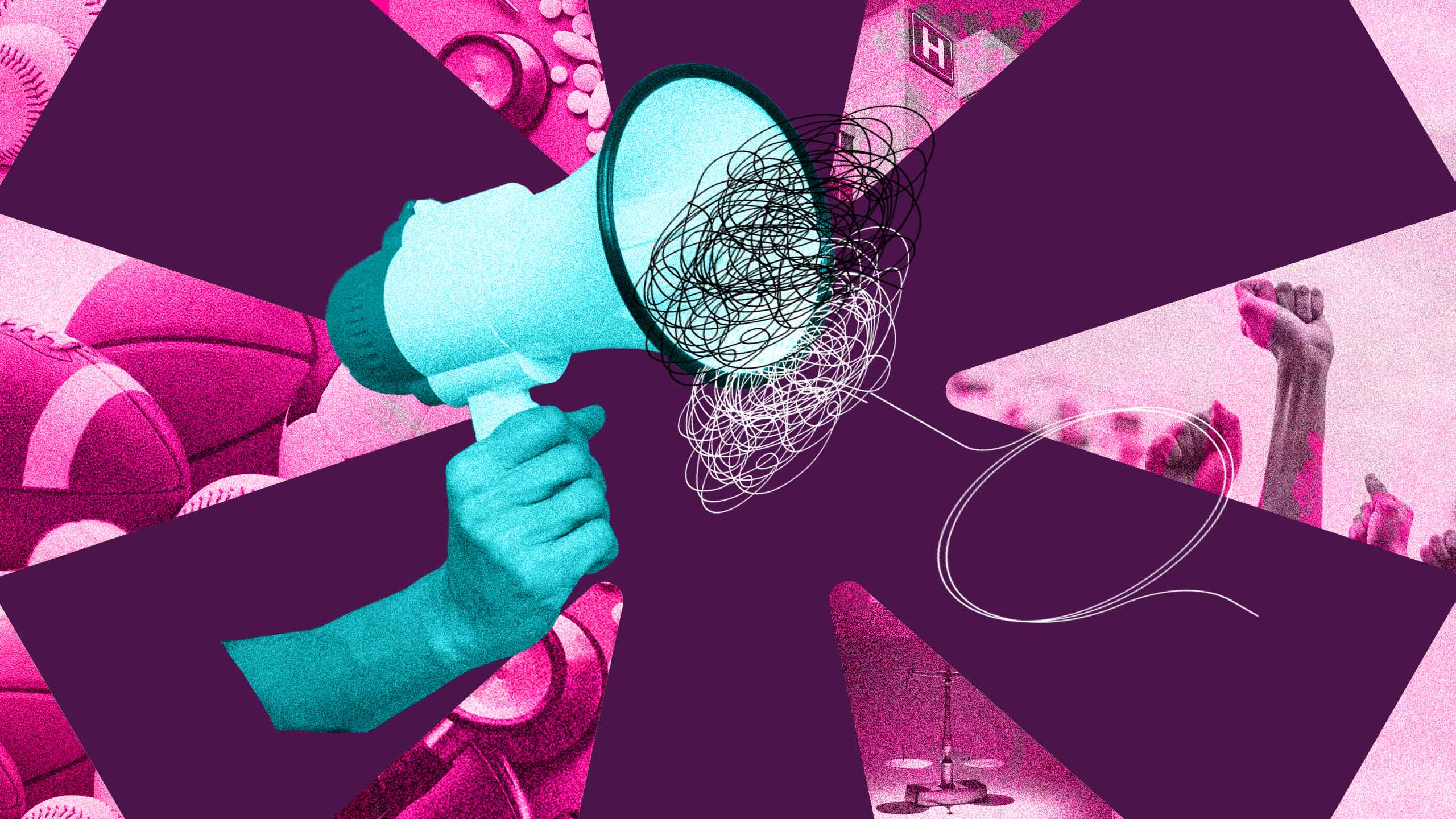A few weeks ago, I wrote about how conservatives and the gender critical movement were using euphemistic language to imply that they wanted to rid the world of trans people. Unsurprisingly, they haven’t let up since. Last weekend, conservative activist and Daily Wire pundit Michael Knowles all but confirmed that plan by telling a delighted crowd at this year’s Conservative Political Action Conference that he wanted to “eradicate transgenderism.”
There’s been much discussion in the media since his speech about whether or not Knowles was actually saying he wants to “eradicate” trans people. The pundit has since tried to walk his statements back, explaining that he merely wants to eliminate the idea that trans people can exist in society—not literally kill all trans people. But to me, a real, living, breathing trans person, there is no difference between those two outcomes. Either way, you’re producing a society with no trans people in it.
As I mentioned in my recent column: if you eliminate the thing that makes me who I am, you are eliminating me.
But there are other language choices we need to unpack—such as the right’s use of terms like “transgenderism” or “trans activists,” and what they’re really saying when they use them.
According to Knowles himself, the political right does not believe that being trans is a valid human thing to be. Instead, the thinking goes, trans people have come to exist because an ideology has grown out of a morally corrupt society. Right-wing figureheads call this ideology “transgenderism,” or sometimes “gender ideology.”
They present this ideology as threatening to the traditional family structure because it discards traditional male and female gender roles that conservatives believe are natural and innate.
“Gender ideology” as a term was actually invented by the Catholic intellectuals in the early 2000s to describe the shifting culture enabled by earlier feminist and LGBTQ2S+ rights victories. The book “Anti-Gender Campaigns in Europe,” edited by Roman Kuhar and David Paternotte, describes the earliest development of the term in its introduction. It tracks its use from early theological essays to the first international conference on “gender ideology” organized in 2011 by the Opus Dei Universidad de Navarra in Spain.
“The Catholic church thus undoubtedly played a crucial role in the emergence and the development of the epithet of ‘gender ideology.’ This campaign has been endorsed by the Vatican’s highest authorities, which have long considered it to be a political priority,” reads the book’s introduction.
The term grew in popularity in far-right and populist circles as it allowed disparate extreme groups with different goals to fight the growing liberal women’s rights and LGBTQ2S+ rights movements. “In both cases, gender functions as “symbolic glue,” as it allows actors with diverging goals and strategies to work together against a common enemy,” wrote Patornotte and Kuhar.
“‘Gender ideology’ is meant to be an amorphous term for whatever social ‘family’ issue conservatives are currently upset about.”
The term “gender ideology” means different things in different geographic areas. In eastern Europe, gender ideology is often used as a substitute for feminist or LGBTQ+ activism. In Africa, it means gay rights activists. In western Europe and the U.S., the term is much more commonly associated with the trans rights movement. But to the term’s originators, “gender ideology” is meant to be an amorphous term for whatever social “family” issue conservatives are currently upset about.
In the U.S. and U.K., the term that Knowles recently used, “transgenderism,” has similarly been launched into the right-wing lexicon by conservative and gender critical activists who want to be careful about coming across as hateful of trans people. They assuage their own guilt or shield themselves from criticism by professing to be fighting an idea, not real human people with their own human lives.
There is no such thing as the idea of “transgenderism” because the people we now call transgender have existed in many forms across human history, such as the hijras of India and Two-Spirit indigenous North Americans. There was even a Roman emperor, Elagabalus, who reportedly demanded their imperial doctors find a way to turn their penis into a vagina. That sounds a lot like something a trans woman would say nowadays.
Conservatives claim to be fighting against an ideology, which they sometimes falsely compare to a religion, and so any regular old trans person can be smeared as a “trans activist.” A recent leak of 2,600 emails between conservative state legislators like South Dakota state representative Richard Deutsch and those deepest in the American anti-trans movement, like Alliance Defending Freedom attorney Vernadette Broyles, show a concerted effort to publicly portray transness as an ideology and trans people as purveyors of that ideology rather than real human people.
While attempting to get a youth gender care ban passed in Idaho, members of the loose coalition discussed striking the use of the word “cisgender,” because it “indirectly endorses the ideology upon which transgender identities are based.”
It’d be much simpler if conservatives would stop using these “hate the sin, not the sinner”-type euphemisms and just say what they really mean: they believe trans people shouldn’t exist. Michael Knowles claims he doesn’t want to kill trans people, but making it illegal to be trans accomplishes the same thing. Ask yourself this: what are the Knowleses of the world to do when people like me refuse to take their orders and detransition?


 Why you can trust Xtra
Why you can trust Xtra


